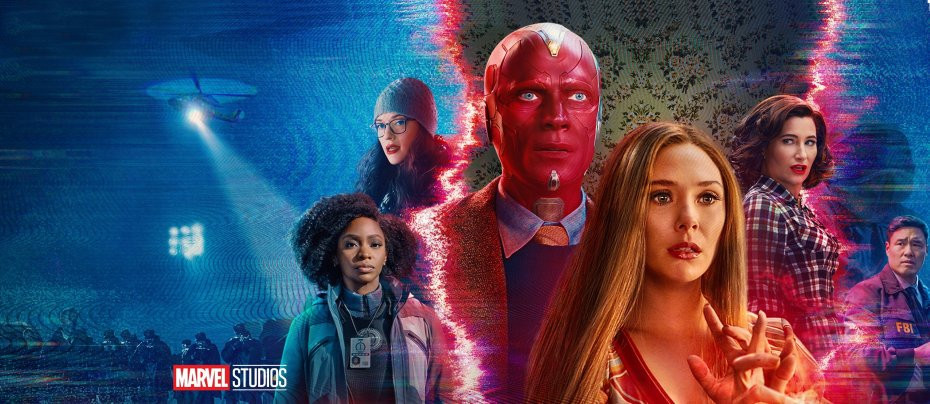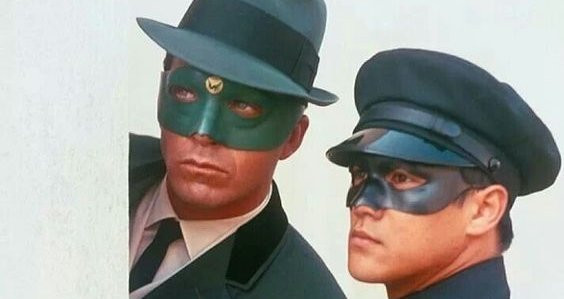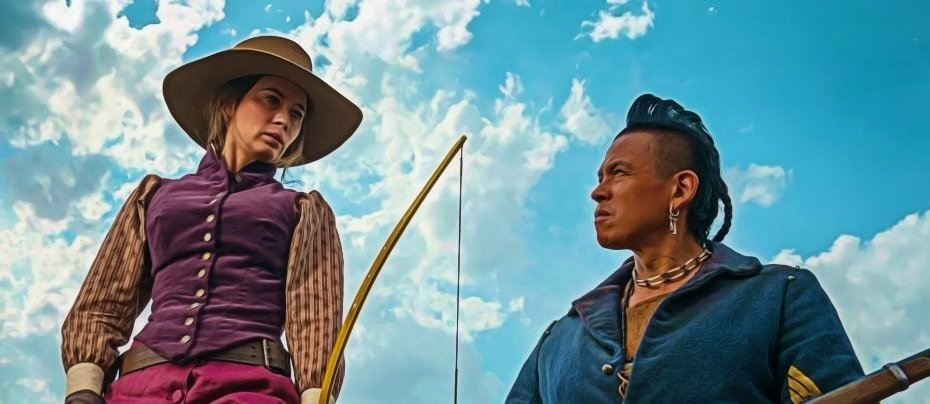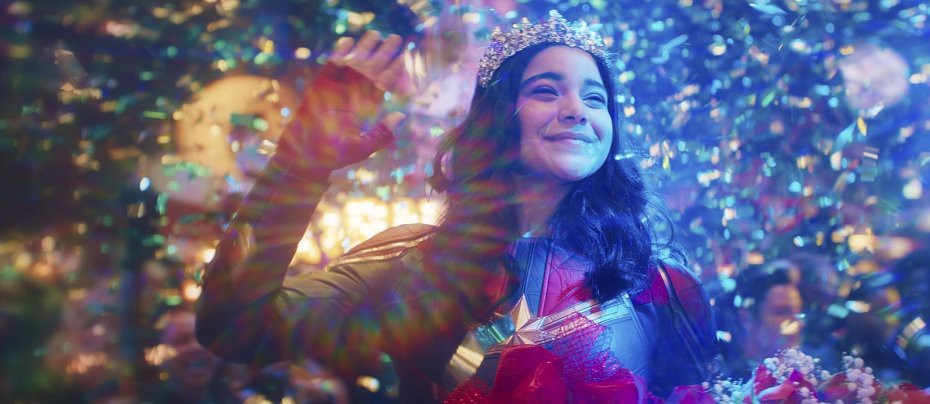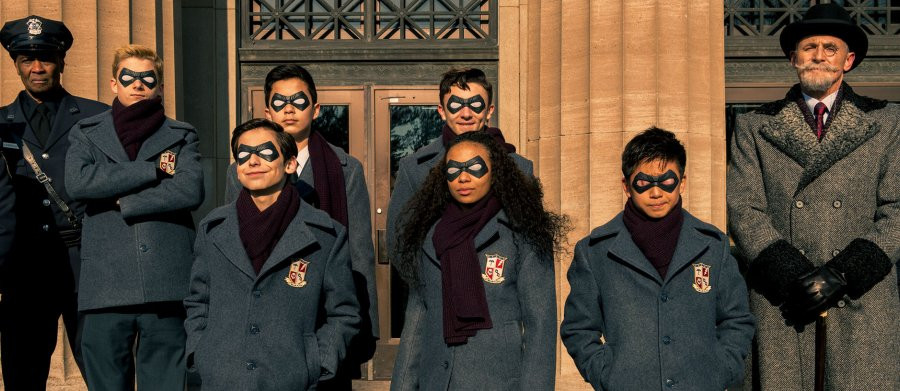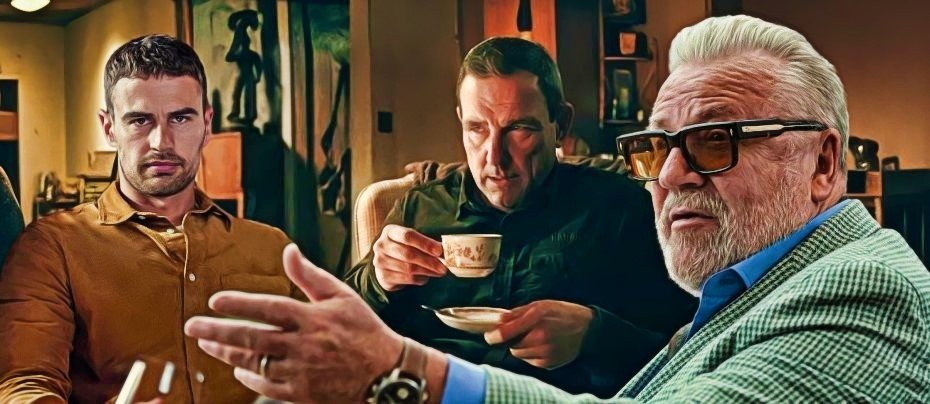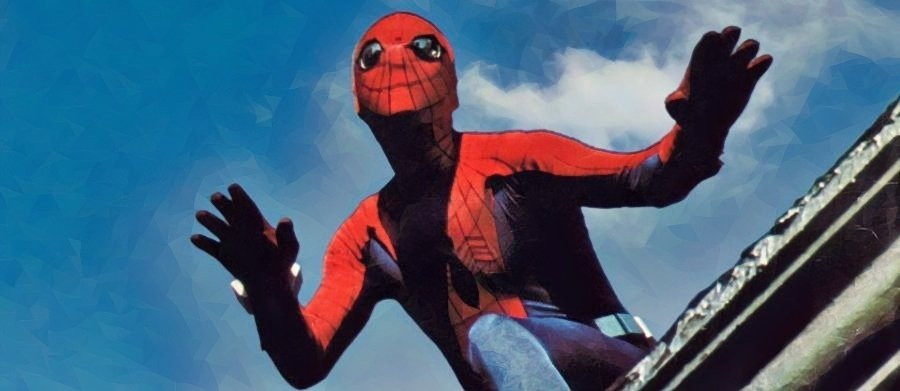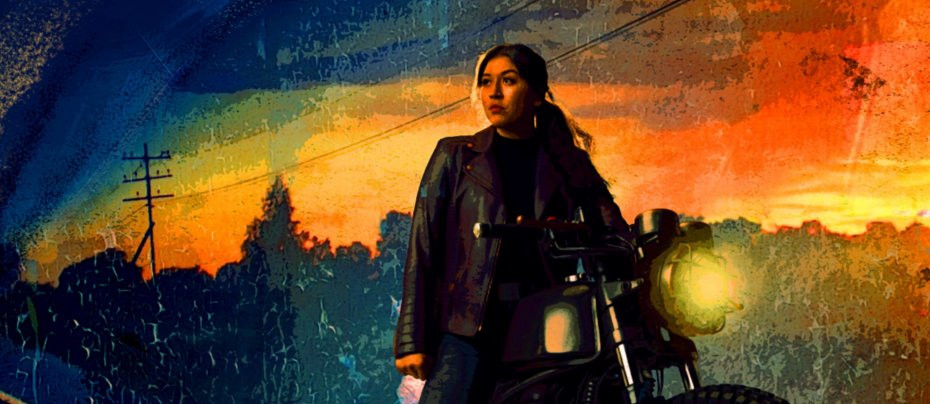
Echo
2024 - United StatesEcho’s slow-burn tension won’t appeal to all fans of the usual frenetic Marvel style
Review by Daniel Tessier
One of the strengths of Marvel Studios’ ongoing run of television series is that they each feel distinctly different from each other. The genres presented run from high fantasy to urban thriller; the target audiences from young teens to adults-only; the style from cartoonish and comedic to serious and, if not realistic, then at least halfway plausible. This is perhaps the single most important consideration for the franchise’s success, even more so than its quality, which has been equally varied.
Echo is the tenth series produced by Marvel Studios, and that number gets significantly higher when you consider the series produced by the Studios’ predecessor Marvel Television, before Disney+ became the home for all things Marvel. As the Marvel Cinematic Universe grows and grows, it’s starting to struggle to maintain viewer interest, and so this variety is absolutely vital for its continuation. Fortunately, Echo stands out in its style, its focus, its lead character and its storytelling.
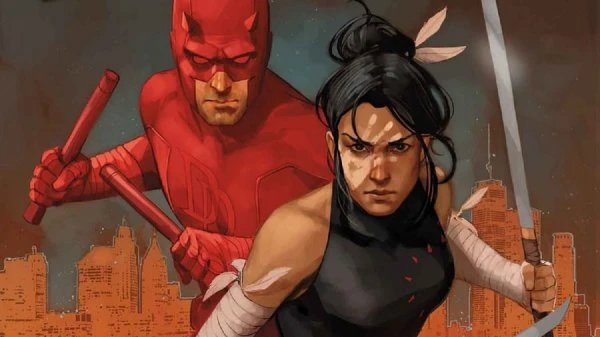
Maya Lopez, Echo herself, is a unique character in the Marvel canon: a Native American assassin who is also profoundly *D/deaf since birth. This marks her out as different than the many other characters in Marvel publications and comics in general. The actor playing Lopez on screen, Alaqua Cox, is also Native American and D/deaf, but adds her own unique characteristic to the character: she is an amputee, having had part of her right leg removed, which becomes another important aspect to the character. There are some other differences between the comicbook character and the screen version, as there often are in such adaptations; notably, the comicbook Echo is a Cheyenne while the MC version is Choctaw, which is reflected in the setting and storyline of the series. (Cox herself is Menominee-Mohican, setting her apart from either version of the character.)
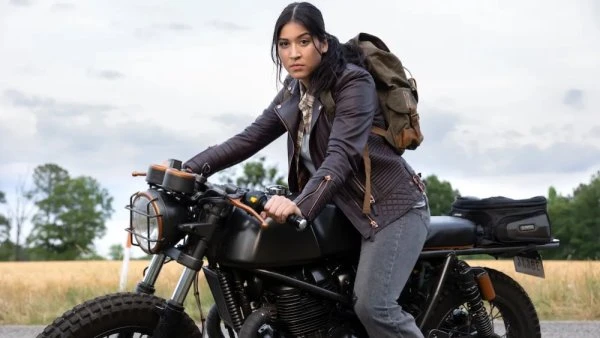
It’s a powerful statement, having someone represent both the Native American and D/deaf communities on television in a major production, and without fakery. It’s easy to imagine that in years gone by a hearing actor would have portrayed Lopez, and there’d be no guarantee we’d even have someone of Native American descent in the role. Aside from her importance in representation, it’s important to recognise that Cox is an excellent actor, and absolutely owns the role. From her initial appearance in Hawkeye, amazingly her first ever screen role, she has given a deep, heartfelt, formidable and complex performance as Lopez, while never speaking a word.
Which is not to say that Cox has no dialogue. Far from it, Echo makes extensive use of American Sign Language, with the supporting cast learning the language in order to communicate with her both in and out of character. This is supported by extensive subtitling, so that the large proportion of the audience who don’t understand ASL can still follow and enjoy the dialogue. It’s rare, though, that a high budget, prestige television production gives so much of its runtime over to non-spoken dialogue. There are, however some instances where the direction and cinematography fail to fully respect the needs of ASL, and cut off some of the picture. While the subtitles largely make up for this, not everyone who uses sign language is proficient in written English, which is an oversight, especially for such an otherwise thoughtful production.

Echo is the first series released under the Marvel Spotlight banner, which allegedly means that it’s a standalone story that can be enjoyed without having seen the enormous MCU back catalogue. This is a bit of a fib, really, considering that the series continues from Hawkeye and sets up the upcoming Daredevil: Born Again, itself a continuation of the Marvel Television/Netflix Daredevil series. You can watch this without seeing any of that, but you’ll inevitably realise you’re missing a lot of the story, particularly when Charlie Cox briefly drops in for a scrap in his Daredevil suit, or Jeremy Renner shows up in flashback footage from Hawkeye. Still, there is something apt about introducing the Spotlight banner on television with a Native American superhero, just as it was introduced in comics back in 1971 with Red Wolf.
Maya’s heritage is a vitally important part of her story, both in the main narrative, which sees her return to her hometown in Oklahoma where she gingerly reconnects with her family and culture, and in recurring flashbacks to earlier times in Choctaw history. These range from a visually stunning representation of a Choctaw creation story, through history to the early years of the United States, mingling with flashbacks to Maya’s own childhood. Each of the historic sequences links her to a different powerful woman, each of them an ancestor, and she later calls on their abilities in the serial’s final episode. This supernatural element is a relatively small but vital part of the story, and this particular combination is unusual and effective. It’s an uncommon approach, mixing the mundanely brutal with just a sprinkling of the spiritual. The Marvel productions that come closest, appropriately, is Daredevil and its spin-off The Defenders, but being set in New York they have a more urban focus, quite different from Echo’s Reservation-setting.

Another significant element that evokes Daredevil is the inclusion of Vincent D’onofrio (Law & Order: Criminal Intent) as Wilson Fisk, the Kingpin of New York crime. Much of Maya’s story revolves around her alienation from her family following her mother’s death, her brutal education at the hands of Fisk, and finally her father’s death. It’s in this part of the story that her previous appearance on Hawkeye is so essential, and while the key events are sketched in, coming into Echo without seeing this first will leave viewers lacking some emotional context. Still, even when based on the events in Echo alone, the story is compelling, as Maya struggles to come to terms with Fisk’s responsibility for her father’s death, and the abusive nature of his own guardianship of her. D’onofrio’s measured, subtle yet quite terrifying performance as Fisk was one of the major reasons for Daredevil’s success, and his appearance on Hawkeye, while less powerful, nonetheless added something considerable to that series.
So it comes as no surprise that D’onofrio’s performance is one of the highlights of Echo, and his scenes with Maya are among the most compelling. We get a considerable look into his psyche (not that this was missing from his earlier appearances), but perhaps most telling is that in all the year’s he’s looked after Maya he hasn’t bothered to learn more than a few ASL signs, instead relying on an interpreter and, later, sophisticated translation technology. Maya gradually proves that she is by far the bigger and more mature person, and while the culmination of the story is somewhat anticlimactic, it feels right for the character.
Not to be overlooked are Maya’s real family, played by some great American and Canadian actors. Perhaps best is Tantoo Cardinal (Spirit Bay, Blackstone) as Maya’s embittered grandmother Chula, whose own path to acceptance of her loss is as central to the story as Maya’s. Graham Greene, one of the most recognisable Native American actors for his long and prolific screen career (including Northern Exposure, Exhibit A and Longmire) plays Skully, Chula’s ex-husband, who acts as a grandfather to Maya and helps fix her up in his pawn shop.
Chaske Spencer (The Twilight Saga, Into the West) is impressive as the tense and troubled uncle Henry, aka Black Crow, who owns a roller-skating rink in Maya’s hometown. Part of Fisk’s sprawling criminal empire, the rink is the scene of some of the series’ most visually impressive fight sequences, as Henry struggles to do what’s right without endangering himself and Maya. Kawennáhere Devery Jacobs (Reservation Dogs, American Gods) is impressive as Maya’s cousin Bonnie, born to D/deaf parents and Maya’s best friend until she was taken away by her father. Incidentally, both Spencer and Jacobs have played other roles in the MCU: Spencer appeared as Montero on Jessica Jones, while Jacobs voiced Iroquois superhero Kahhori in this year’s second season of the animated series What If…?
Cody Lightning (Four Sheets to the Wind) is a lot of fun as Maya’s other cousin, Biscuits, while Zahn McClarnon (Longmire, Fargo, Westworld) and Katarina Ziervogel make the most of their little screentime as Maya’s parents in flashback. In the wider cast, Andrew Howard (Agents of SHIELD, Bates Motel) is entertainingly sinister as Fisk’s henchman Zane. Julia Jones (also of Longmire, Westworld and The Twilight Saga) is impressive in a short but powerful scene as the first Choctaw warrior.
It's Cox and D’Onofrio whose performances stand out though, even amongst such a solid cast. Working with a strong script and some powerful direction by Sydney Freeland (Drunktown’s Finest, Her Story) who brings her own experience as a Navajo to a production committed to authentic Native American perspectives. Echo’s slow-burn tension won’t appeal to all fans of the usual frenetic Marvel style, and it is nowhere near as standalone as its marketing claims it to be. As such it risks falling between two stools in terms of its audience. Nonetheless, Echo is a powerful and gripping story of outsiders, family and personal strength, and deserves a place among the best of Marvel Studios’ output.
*The term "d/Deaf" is used to identify someone who is deaf or hard-of-hearing. The term "deaf" with a small 'd' is used to describe people who have difficulty hearing and may use a hearing aid or cochlear implant. The term "Deaf" with a capital 'D' is used to describe people who have barely any or no functional hearing and identify themselves as culturally Deaf.
Seen this show? How do you rate it?
Seen this show? How do you rate it?
Published on March 12th, 2024. Written by Daniel Tessier for Television Heaven.


